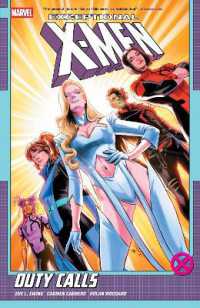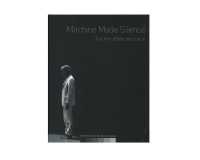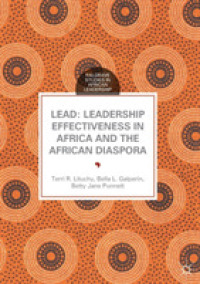- ホーム
- > 洋書
- > 英文書
- > Literary Criticism
Full Description
Hellenistic Poetry has enjoyed a notable re-appreciation in recent years and received ample scholarly discussion, especially focusing on its reception and innovation of Greek poetic tradition. This book wishes to add to our picture of how Hellenistic poetry works by looking at it from a slightly different angle. Concentrating on the interaction between contemporary poets, it attempts to view the dynamics of imitation and reception in the light of poetical self-positioning. In the courtly Alexandrian surroundings, choosing a poetic model and affiliation determines one's position in the cultural field. This book sets out to chart, not only the well-known complexities of handling the poetic past, but especially their relation to the poetic interaction of the Hellenistic, in particular Alexandrian poets.
Contents
CHAPTER 1: POETIC PREDECESSORS IN EPIGRAM
1.1 From Greece to Alexandria
1.2 Greek Poets and their Predecessors
1.3 Royal Patronage and Cultural Memory
1.4 Which Poets and what Past?
1.5 Poetical Predecessors Represented in Epigram
1.5.1 The Text as Monument
1.5.2 Biographical Readings
1.6 Conclusion
CHAPTER 2: COMING TO TERMS WITH POETIC MODELS
2.1 Tradition and Originality
2.2 Meeting Ancient Poets
2.2.1 Timon, Xenophanes and Pyrrho in Homer's Hades
2.2.2 Hipponax in Callimachus' Iambi and Herondas' Mimiambi
2.3 Paradigmatic Poets: Theocritus 16:
2.4 Biased Readings: Hermesianax' Leontion
2.5 Poets to Avoid
2.5.1 Imitating Homer
2.5.2 Liking Antimachus
2.6 Conclusion
CHAPTER 3: APPROPRIATING MYTHICAL POETS
3.1 Inventing Traditions
3.2 Mythical Poets
3.3 Orpheus in Greek Tradition
3.4 Orpheus in the Argonautica
3.5 Orpheus and the Hymnic Argonautica
3.6 Theocritus and the Invention of Bucolic Poetry
3.7 Ancient Theories on the Origins of Bucolic Poetry
3.8 Daphnis in Idyll 1
3.9 Allusive Narrative
3.10 Daphnis in the other Idylls
3.11 Daphnis and Comatas
3.12 A World of Song
3.13 Conclusion
CHAPTER 4: CRITICIZING CONTEMPORARIES
4.1 The Muses' Birdcage
4.2 Poetic Competition and Strife
4.3 Bourdieu's Field of Cultural Production
4.4 Callimachus and Apollonius
4.5 The Aetia-Prologue
4.6 The Telchines and the Lyde
4.7 Callimachus' Iambi
4.8 Epigrams
4.9 Conclusion
CHAPTER 5: PRAISING CONTEMPORARIES
5.1 Praised Poetics and Poetics of Praise
5.2 Praising the Old and the New
5.3 Reading the Signs in Aratus' Phaenomena
5.4 The Mirror of Immortality
5.5 Inviting Comparison
5.6 Eliciting Praise
5.7 Conclusion
CHAPTER 6: PERSONA, ALIAS AND ALTER EGO IN SPHRAGIS-POETRY
6.1 Sphragides
6.2 The Seal or Testament of Posidippus
6.3 Role-Playing versus Self-Portrayal
6.4 Allusive Names, Elusive Poets
6.5 Punning and Wordplay
6.6 Theocritus, Simichidas and Lycidas
6.7 Conclusion
CHAPTER 7: AUTHORITY AND INSPIRATION IN THE AGE OF THE MUSEUM
7.1 Questioning the Muse
7.2 Homeric Scholarship and Hellenistic Poetry
7.3 Overview of Passages featuring ὑποφήτης
7.4 The Μοῦσαι ὑποφήτορες of Apollonius
7.5 Apollonius on Poetic Inspiration
7.6 Parallel Representations of the Muses
7.7 Theocritus
7.7.1 Idyll 16: Κλέος and Prophecy
7.7.2 Idyll 17: Immortal Fame for an Immortal King
7.7.3 Idyll 22: Rewriting the Poetic Past
7.8 Conclusion








